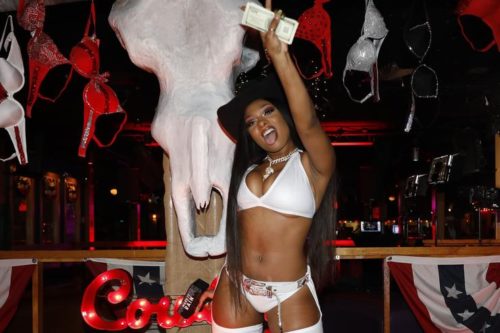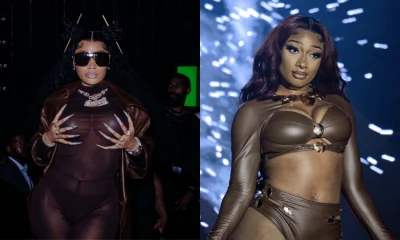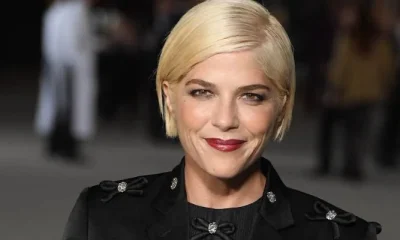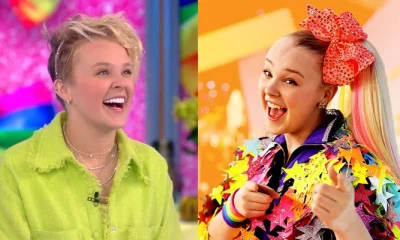
On account of her empowered outlook, it made some of her recent comments in regards to hip-hop’s treatment of women and the uneven keel that’s been maintained and upheld all the more newsworthy. In a recent interview with Fader, the self-proclaimed “hot girl” dispensed with the idea that equality has been implemented across the board, and highlighted what she sees as a deficit between how she’s treated and the concessions afforded to her male contemporaries:
“Being a girl too—they criticize you harder than they criticize men,” she expressed. “If I was out there making little noises like Uzi and Carti be making, they would not rock with that. And not saying that they don’t be going hard, because we definitely finna turn up to both of them, but if it was a chick, like—no.”
Prone to a more verbose rhyming style that hearkens back to rap traditionalism, Megan’s remarks insinuate that it’s far from a level playing field in hip-hop music, when it comes to artistic expression. Where some male rappers are continually pushing the boundaries of lyrical incoherence, the rising female artist believes that women would be way more likely to gain the ire of the hip-hop commentariat for offering up similar such “mindless” content.
With more women gaining a foothold in the genre than ever, Megan’s remarks lend themselves to a larger examination of whether this structural bias still exists, and if female MCs are now in a position to transcend any of the ceilings that used to constrict them.
For the open-minded hip-hop consumer, today’s eclectic and unbounded world of female hip-hop is something to rejoice over. Whether it’s the incisive poeticisms of Tierra Whack and Rapsody, the impenetrable cool of Saweetie, the lurid sexcapades of CupcakKe or the volatile energy of Rico Nasty, Princess Nokia and Asian Doll, these artists are beginning to ascend from the underground and fashioning careers that look to have plenty of longevity and upside potential. So, from this vantage point, this rich and diverse landscape would make it easy to sneeringly brush off Megan’s claims and cite these women as case studies to the contrary. However, her testimony neatly aligned with the righteous anger of another decorated woman in hip-hop. Arguably the toast of the creatively vibrant Chicago scene, Noname took to Twitter in order to rebuke what she saw as a reductive statement from user @thecrewsdad.
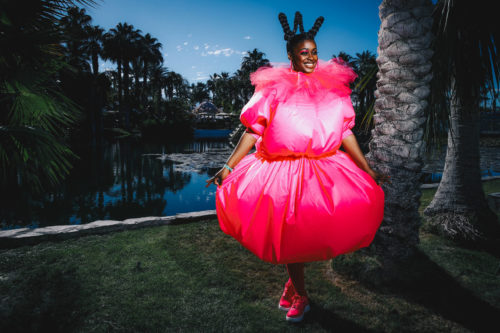
Adamant that “Young MA is the ONLY female rapper not using her body to sell records,” the comment was not only refuted by Lil Yachty– who offered Tierra Whack and Rico Nasty as additional examples- but taken to task by the woman behind the spellbinding Room 25. In a since deleted tweet, the “Goat Trio” affiliate targeted the perception that female artists should be chastised for “selling sex” when it’s been the remit of the record industry for decades:
“Male rappers use bragging about women’s bodies to sell records. Male executives use women’s bodies to sell records. Now women are claiming autonomy and niggas get pressed. Male species is so basic sometimes lol.”
Portrayed as more of a show of defiance than compliance, Noname’s claims that women are now doing things on their own terms could be construed as a rebuttal to Megan’s rhetoric. On the other hand, where the commonality lies is that it speaks to an ingrained wariness over female rappers’ artistic or aesthetical choices from male listeners and industry figures alike. In a 2007 NPR discussion on hip-hop and gender imbalance, author and University Of California Berkeley lecturer Aya De Leon argued that the cultural issues around women in hip-hop are part of a larger systemic issue:
“If we look at the history of hip-hop, we see since the beginning, women have been participants and practitioners of the art. And there’s always been a whole lot of sexism in hip-hop, about how women artists are treated and about how women are spoken of in general. And it’s not any special hip-hop sexism. It’s just a reflection of the garden-variety sexism of the society.”
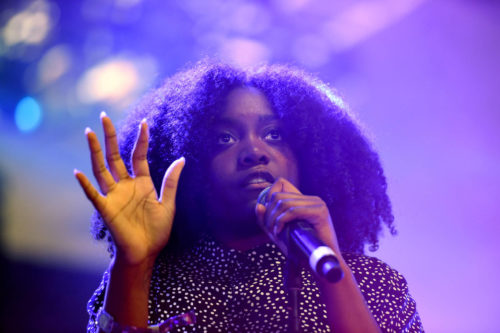
Expanded on by her claims that when “many of the female artists speak, they speak in the voice of the porn star,” it’s important to examine how things have shifted since the mid-noughties when he she made this critique.
Prior to the advent of the social media age, record companies and publications ultimately held sway over what female artists could rise to the top. But now that we live in a world where anyone can organically amass a fanbase, artists that deviate from the mould are capable of gaining traction, critical acclaim and respect of hip-hop devotees. That said, what hasn’t changed is that those who err on the side of caution and keep themselves within easy groupings are more likely to attain mainstream success to different degrees.
This has meant that for the most part, labels, consumer and even hip-hop media has tried its best to ensure that female artists can be shoehorned into two main pre-sets. An example that’s been heeded by everyone from Trina and Foxy Brown to Nicki Minaj and Cardi B, Kim’s hypersexualized image and positioning as a hip-hop femme fatale is one that the industry and fans are both accustomed to and accepting of.
Then on the other side of the spectrum, we have the MC Lyte model that has acted as the basis through which to frame artists from across the eras. Whether it’s Missy Elliot, Queen Latifah, The Lady Of Rage, Young MA or Tierra Whack, the approach that was assigned to the pioneering Brooklynite behind Lyte As A Rock has been used on anyone that strayed from the “sex sells” mentality.
With an emphasis on their lyrical prowess and contrarian status, there has been a wrongful tendency to see them as more “credible” artists, based on their public presentation– despite the fact that Missy Elliot and Young MA are no strangers to lustful lyricism. Through this two-pronged approach, Megan’s belief that her deviations wouldn’t be tolerated “if she was a chick” begins to roar into focus.
For women in hip-hop, the tight rope between what can be perceived as artistically merited and what is commercially viable has been far more precarious than that of male rappers. In order to overthrow that, the views of rappers such as Noname and Megan Thee Stallion need to become the norm. With hip-hop morphing into more of an intersectional and inclusive melting pot than ever, Megan must know that she’d be supported in whatever artistic endeavour she wishes to pursue. By the same token, examples such as Noname’s refusal to condemn any of her fellow women for expressing themselves with fluidity and honesty, no matter how many feathers it may ruffle, has to become the norm in order to dispel the last vestiges of sexism that may remain.
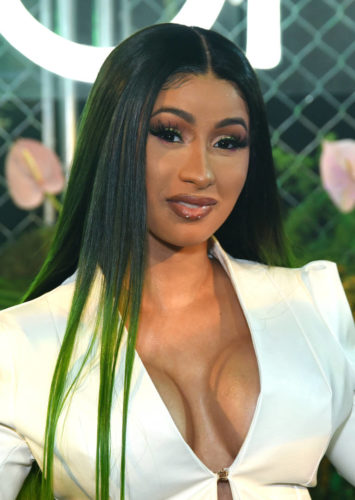
Rather than allowing themselves to be pitted against each other in the vein of Nicki and Cardi, a united front that dispels any preconceptions about what women can and can’t do in hip-hop is pivotal to allowing artists to create freely and without any fear of discreditation. But it’s not just up to the MC’s, it’s up to the consumers too.
To summarize this concept, let’s conclude on testimony from a veritable hip-hop legend in Remy Ma. Optimistic about the direction that things are going in, Remy’s sense of solidarity is the exact attitude that’ll help to eradicate any lingering bias once and for all:
“When I came home, there was like no female rappers, it just one person and it had been like that for years. I had people telling me ‘I don’t know where you’re going to fit in’ and I was like… who me? Not only am I going to fit in, I’m going to open a way for myself and when I do, I’m going to put the doorstep under the door so that anyone coming behind me can come in.”

